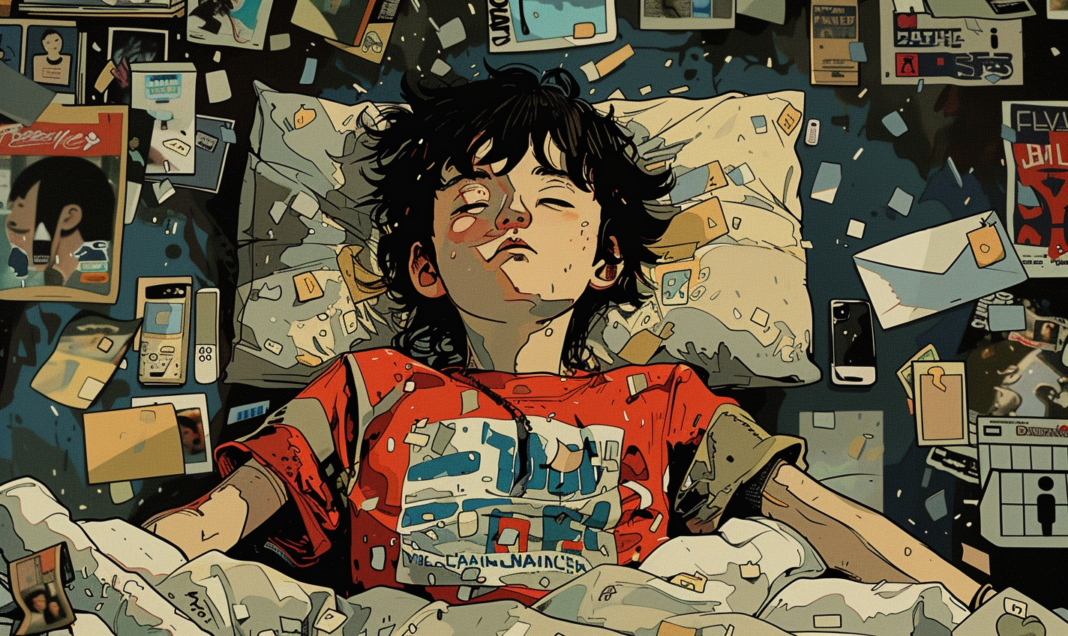In a twist that would make even the most seasoned insomniac sit up, white-noise apps—the digital lullabies meant to soothe us into slumber—have become the latest playground for ad fraudsters. According to a recent exposé by DoubleVerify, cyber tricksters are turning these calming soundscapes into cash-grabbing machines, siphoning off advertising dollars through elaborate schemes with charming names like “BeatSting” and “FM Scam.”
White-noise apps have surged in popularity, with nearly 200 articles in the past year hyping up everything from “Ocean Waves” to “Deep Sleep for Kids.” But behind these tranquil facades, fraudsters are playing advertisers like a bad lullaby. The setup is as simple as it is sinister: fake streaming data, spoofed IP addresses, and counterfeit servers trick advertisers into paying for ads that never reach a single human ear. It’s like shelling out premium CPMs for a midnight snack in a dream you didn’t even sign up for.
This isn’t the first time fraudsters have exploited seemingly benign apps. Back in 2019, cybersecurity firm HUMAN uncovered “Poseidon,” an ad fraud scheme where over 40 Android apps openly committed multiple forms of fraud. And this wasn’t a one-off—it evolved into “Charybdis” in 2020 and later into “Scylla,” impacting 89 apps with a staggering 13 million downloads from the Google Play and Apple App Stores.
Then there was “Vastflux,” a scheme that compromised about 11 million devices by loading multiple video ads in sneaky layers using spoofed apps and malicious JavaScript. Imagine your device under a barrage of invisible video ads stacked like an endless deck of cards, all thanks to sophisticated fraudsters running a racket that most users would never see.
The latest white-noise fraud case fits right into this pattern. Take the infamous “Deep Sleep” and “Deep Sleep for Kids” apps. On the surface, they appear like perfect sleep aids, each with over 10,000 downloads. But DoubleVerify found they’re more “Deep Fraud” than “Deep Sleep,” pumping out phony impressions with the precision of a seasoned scam artist. While genuine white-noise apps peak at night, when people are actually asleep, these apps suspiciously spike during the day—a blaring red flag that something wasn’t right.
The financial implications are nothing short of staggering. Throughout 2023 and 2024, dozens of apps have been pulling off this trick, with unprotected advertisers unknowingly buying over 45,000 fake impressions per app every month. Even at a conservative CPM rate of $5, that’s at least $225,000 per app per month—money that could’ve supported real developers but instead went straight into the pockets of con artists.
In a totally fictional quote, DoubleVerify CEO Mark Zagorski probably didn’t say, “Ah, yes, the cutting edge of ad fraud—babbling brooks and soothing rain sounds. Who knew bedtime ambiance would be the new frontier of cybercrime? Honestly, I wouldn’t be surprised if my own meditation app starts muttering ‘Pay up, sucker’ between om chants. At this rate, ad fraud will soon include charging for dream impressions.” Zagorski didn’t actually say this, of course, but if he had, who could blame him?
This cozy racket underscores the desperate need for advertisers to implement real verification on their audio streaming buys. Otherwise, they’re just throwing money into the comforting void of “sleep sounds.” Next time you hear “ocean waves” on your favorite app, remember: that relaxing noise might just be the sound of your ad budget quietly slipping away into oblivion.




